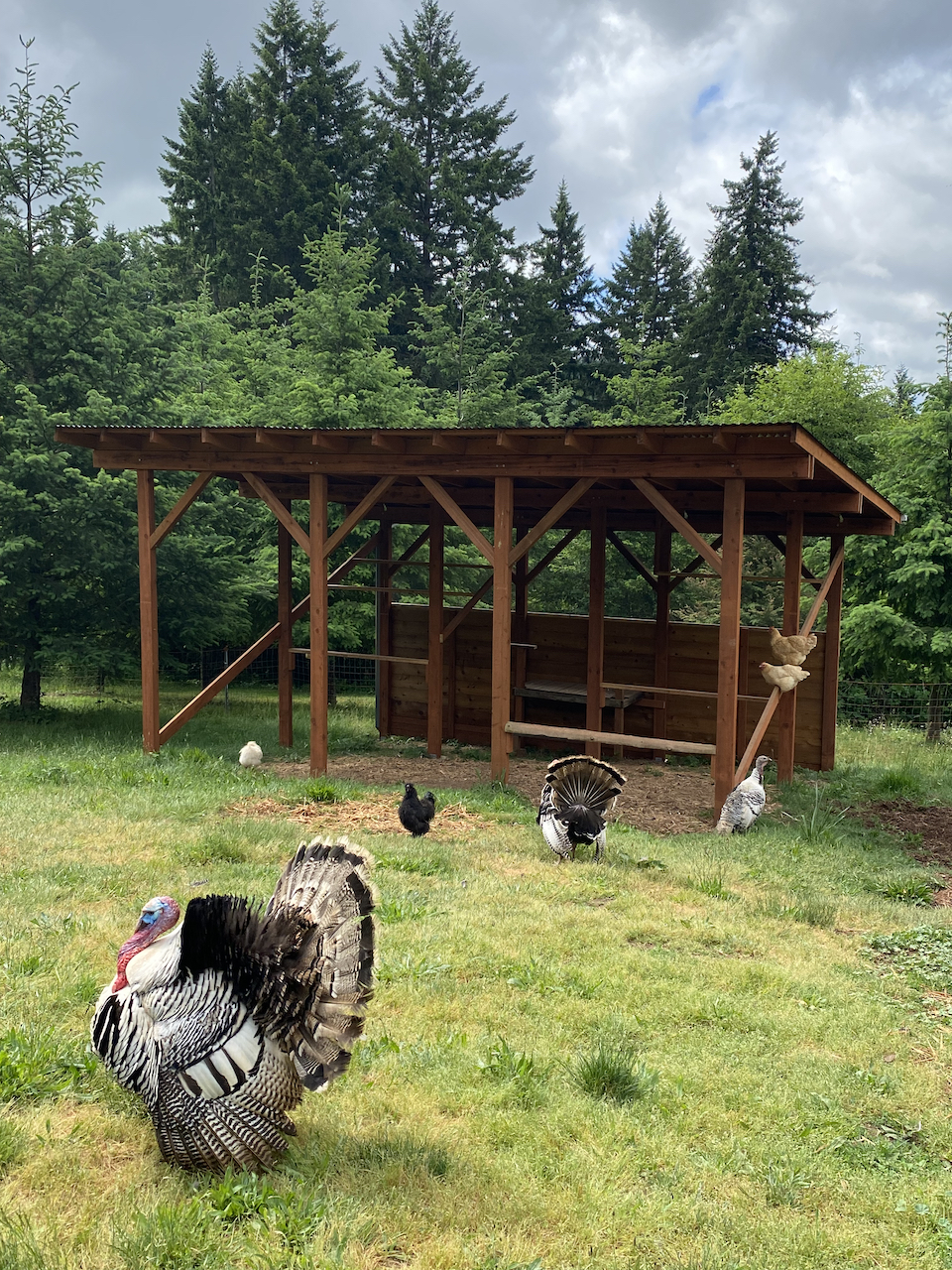
Housing
Poults grow quickly and they can fly high at a young age. If you are using a relatively small container for a brooder, you will find that they will rapidly outgrow it and will be ready for more space by the time they are a few weeks old. At this time they can be transitioned into their adult housing, but they should still be kept separate from the rest of the flock. A heat source should still be provided until they are fully feathered at about eight weeks old. Use this indoor time with your poults as a good opportunity for socializing them. The more time that you spend bonding with your turkeys as juveniles, the easier it will be to handle them as adults. You can give poults limited access to the outdoors with a sunporch, which is a screened area that can be built onto an exterior wall of their housing and that has a wooden floor to keep the poults off the ground.
Once your juvenile turkeys are given full access to the outdoors, you will find them to be very adventurous and independent when it comes to deciding where to settle in for the night. Turkeys prefer high roosts and open spaces, and they will often choose to sleep outdoors if the decision is left up to them. While adult turkeys can handle cold temperatures and sleeping outdoors, we all feel better knowing our birds are safely sheltered for the night. That is why it is important to be vigilant about trying to train your turkeys where they should sleep at night. Turkeys do not like small, enclosed spaces, so when planning their shelter keep in mind that a barn-style structure is more likely to be used by your turkeys than a typically smaller sized chicken coop. Provide your turkeys with a spacious shelter with a high roof and high roosting bars and encourage them to go inside (or chase them inside if they need more encouragement), otherwise you’ll risk having them take to the trees or a rooftop for the night. Once turkeys start to roost outdoors, it is very difficult to convince them to go back to sleeping indoors.
Housing Chickens and Turkeys Together
An important thing to know before getting turkeys is whether blackhead disease (Histomoniasis) occurs in the part of the country where you live. Blackhead disease is caused by a protozoan parasite that can be carried by chickens. While it is very rarely fatal in chickens, blackhead disease is easily spread to turkeys and is often fatal. Contact your local agricultural extension office to find out if blackhead disease occurs in your geographic area. If it does, then you should not keep turkeys in shared facilities or on the same ground that chickens have lived on within the last few years.
All photos are courtesy of Stacy Benjamin.
…
blog.mcmurrayhatchery.com
Feed Name : Murray McMurray Hatchery Blog
Backyard Poultry,Featured,Guest Articles,Other Fowl,Turkeys
hashtags : #Raising #Turkeys #Beginners #Stacy #Benjamin #Farm






Leave A Comment